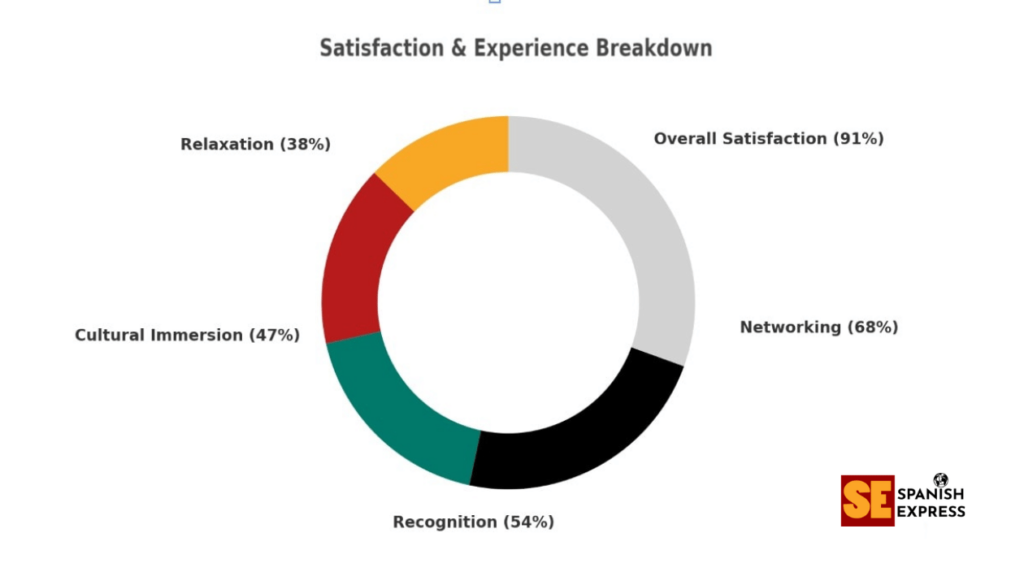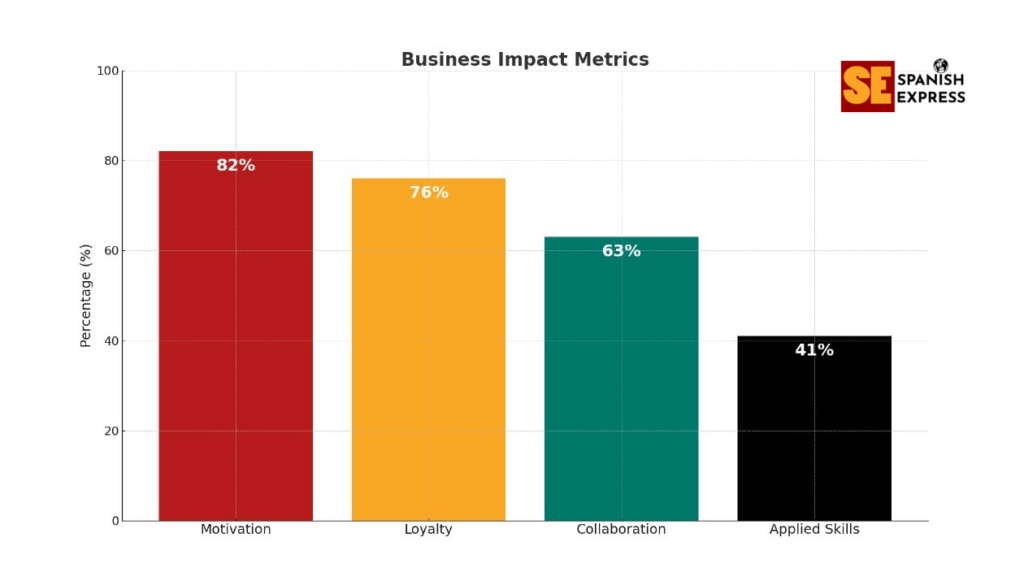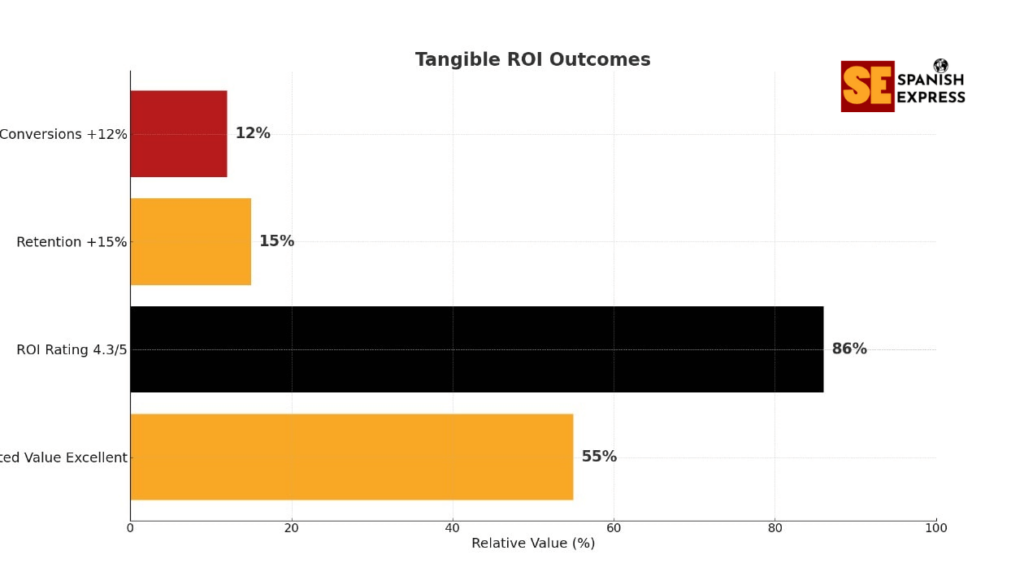

For many businesses, keeping employees motivated, loyal, and productive is a top priority. While cash bonuses or cash rewards still hold some short-term appeal, research shows that they often fail to create lasting engagement. On the other hand, incentive travel programs provide unforgettable experiences that deliver both hard power benefits (such as increased sales and retention) and soft benefits (such as loyalty, recognition, and cultural learning).
The ROI on incentive travel has become a key focus area for organizations looking for a strategic investment that aligns with broader business objectives. The Incentive Research Foundation and the Incentive Travel Index consistently highlight how incentive programs drive long-term value. Multiple sources, including industry research and data from various organizations, support the view that the ROI of incentive travel is derived from a range of factors such as improved employee performance, loyalty, and ongoing benefits beyond the trip itself. They are strategic tools for strengthening company culture, motivating sales teams, and keeping employees engaged in the company’s vision.
Spanish Express, a leader in group incentive travel and cultural immersion programs, recently conducted a survey after organizing a trip for top performers and partners. This report uncovers the ROI of incentive travel, looking at both soft power benefits and measurable outcomes like sales productivity, employee engagement, and increased retention.
Why Incentive Trips Matter
While traditional rewards such as vouchers, a cash bonus, or a cash reward are easy to distribute, they rarely generate long-term ROI and often provide only fleeting satisfaction. In contrast, a travel reward creates lasting memories and delivers emotional and motivational benefits that far surpass those of a cash bonus or cash reward. Travel incentives and non-cash rewards foster a positive company culture, leading to long-term loyalty, better team dynamics, and measurable performance improvements.

Incentive trips are more than vacations. They are powerful tools for:
- Motivation: Inspiring employees to put in the extra effort and reach higher performance goals.
- Relationship building: Strengthening ties with channel partners, colleagues, and clients.
- Shared experiences: Creating unforgettable experiences that bond teams together.
- Cultural learning: Delivering both soft power and hard power benefits through activities like cooking classes, historical tours, or even a zipline adventure.
Spanish Express designed its incentive strategies with these factors in mind, ensuring that properly designed programs aligned with business goals and delivered real ROI.
Designing an Effective Incentive Program
Designing an effective incentive program is essential for companies aiming to inspire their teams and achieve measurable business results. Incentive travel programs, backed by research from the Incentive Research Foundation, have proven to be a powerful tool for boosting sales productivity and employee satisfaction. In fact, properly designed programs can increase sales productivity by 18% and deliver a return on investment (ROI) of 112%.
To maximize impact, companies should align their incentive program with clear business objectives, ensuring that every element from the destination to the activities supports their strategic goals. Offering non-cash rewards, such as incentive trips, has been shown to outperform cash bonuses in motivating employees and driving long-term engagement. These travel experiences not only reward top performers but also foster a sense of achievement and belonging that cash rewards simply can’t match.
By investing in incentive travel programs, companies gain a competitive advantage, drive sales growth, and move their business forward. The key is to create programs that are thoughtfully designed, tailored to the needs of the team, and focused on delivering both immediate and ongoing value.
The Spanish Express Incentive Trip
Spanish Express has hosted a variety of corporate incentive trips to Spain, each designed to reward top performers as well as other high performers and top talent, who significantly contribute to the company’s success. These programs support long-term business objectives by combining cultural discovery, team-building, and professional growth opportunities that strengthen both individuals and teams.
Typical itineraries include:
- Cultural immersion: Spanish cooking workshops, wine tastings, and guided city tours of landmarks such as La Sagrada Familia in Barcelona or the City of Arts and Sciences in Valencia.
- Engaging adventures: Activities like hiking, cycling, sailing, or gala dinners that create lasting memories and bring colleagues together.
- Team-building challenges & workshops: Collaborative exercises that encourage creativity, communication, and better collaboration while aligning with company goals.
- Cross-cultural experiences: Everyday opportunities to practice Spanish, connect with locals, and broaden perspectives through authentic interaction.
Each program balances leisure with professional enrichment, advancing business forward through relationship building, employee satisfaction, and a stronger company culture.

To measure impact, Spanish Express has consistently conducted post-trip surveys. Across all trips hosted so far, results show:
- 91% overall satisfaction (Excellent or Very Good)
- 82% reported higher motivation after their trip
- +12% sales growth in teams following participation
- +15% higher retention compared to non-participants
These programs are specifically designed to increase retention among valuable employees by providing meaningful rewards and recognition.
These outcomes demonstrate that Spanish Express incentive programs deliver both soft benefits (loyalty, engagement, cultural appreciation) and hard power benefits (sales productivity, retention, and measurable ROI).
Smart Incentive Travel Planning
Smart incentive travel planning is the cornerstone of a successful incentive travel program. To achieve the best ROI of incentive travel, companies must carefully select destinations, activities, and experiences that reflect their company culture and business goals. According to the Incentive Travel Index, nearly three-quarters of organizations rank relationship building as the most critical factor in a successful program.
To foster these connections, companies should prioritize group incentive travel activities that encourage collaboration and shared achievement, such as zipline adventures, leadership retreats, or immersive cultural experiences. These activities not only create lasting memories but also deliver soft power benefits, such as emotional impact and stronger team bonds, which are essential for a positive company culture.
By focusing on the long-term value of incentive travel programs, companies can increase employee engagement, improve retention, and promote better collaboration across teams. The result is a positive ROI and a more motivated, connected workforce that is aligned with the company’s vision and objectives.
Survey Findings: Participant Experience
The survey revealed overwhelmingly positive outcomes. These numbers represent the tangible impact of the incentive travel program on employee satisfaction and motivation:
- Overall Satisfaction: 91% rated the trip as Excellent or Very Good, with an average score of 4.6/5.
- Most Valuable Aspects:
- Networking opportunities (68%)
- Recognition and appreciation (54%)
- Cultural immersion (47%)
- Relaxation and leisure (38%)

These results underscore how travel rewards deliver real value compared to cash bonuses. Employees reported that the emotional impact of shared experiences was far greater than monetary rewards.
“The cultural activities were unique, much more memorable than a bonus.”
Such soft benefits contribute to a positive ROI by keeping teams motivated and aligned with the company’s vision.
Survey Findings: Business Impact
The business objectives of the program were clear: increase motivation, improve loyalty, and drive performance. The survey showed:
- 82% reported higher motivation to achieve future performance goals.
- 76% felt stronger loyalty, showing long-term loyalty benefits.
- 63% noted better collaboration with colleagues and channel partners.
- 41% applied new skills learned during the trip.
Recognizing a top performer with incentive travel not only rewards high achievers but also further boosts engagement and drives outstanding results among the team.

Within three months, sales teams reported:
- 12% increased sales conversions
- 15% increase in retention compared to non-attendees

These measurable results confirm that incentive travel experiences create a ripple effect on sales growth, loyalty, and employee engagement.
Creating a Positive Company Culture
A positive company culture is the foundation of a thriving organization, and incentive travel programs play a pivotal role in building and sustaining it. According to the Incentive Research Foundation, companies that invest in incentive travel programs see a 26% reduction in turnover and a significant boost in employee satisfaction.
Travel rewards offer more than just a break from routine; they create opportunities for team building, recognition, and shared experiences that leave a lasting emotional impact. Whether it’s exploring an exciting destination or participating in a unique incentive travel activity, these programs foster a sense of belonging and appreciation among employees.
By prioritizing soft power benefits such as lasting memories and emotional connections, companies can cultivate a positive company culture that drives employee engagement and supports sales growth. Investing in incentive travel programs signals to employees that they are valued, which in turn motivates them to contribute to the company’s ongoing success.
Incentive Programs and Cash Rewards
When it comes to motivating employees and driving business results, incentive travel programs consistently outperform cash rewards. The Incentive Travel Index reveals that 91% of organizations believe incentive travel is increasingly important for engaging dispersed teams and strengthening company culture. While cash bonuses may offer immediate gratification, they are often quickly forgotten and lack the emotional impact that comes with a well-designed incentive trip.
Non-cash rewards, such as travel incentives, create excitement and anticipation, making employees feel truly recognized for their achievements. These experiences are seen as a strategic investment in the company’s most valuable asset, its people, and provide a competitive advantage by attracting and retaining top performers.
By choosing incentive travel programs over cash rewards, companies can foster a culture of motivation, increase employee satisfaction, and drive sustainable sales growth. The emotional resonance and lasting memories created by incentive trips ensure that teams remain engaged and inspired long after the journey ends.
ROI & Value Analysis
The financial ROI of the program was also strong:
- Average Perceived Value: 4.3/5
- Cost vs. Benefit: 55% rated the value Excellent, 34% Good
- Preference Ranking:
- Incentive trips: 64%
- Cash bonuses: 21%
- Vouchers: 9%
- Training/education: 6%
Clearly, incentive programs centered on travel incentives outperform cash rewards when it comes to building long-term ROI and delivering ongoing value.
Key Takeaways & Recommendations
The Spanish Express case study highlights why companies should treat incentive travel programs as a strategic investment:

- Experiences create lasting memories – Employees value travel rewards more than money.
- Soft power benefits matter – Loyalty, recognition, and employee satisfaction build a positive company culture.
- Hard power benefits drive success – Increased sales, financial ROI, and retention are measurable.
- Strategic tool for businesses – When aligned with business objectives, incentive travel becomes a competitive advantage.
Recommendations for companies:
- Use incentive strategies that balance recognition, leisure, and culture.
- Plan properly designed programs with trip earners in mind.
- Focus on soft power outcomes like loyalty alongside hard power benefits.
- Communicate the real ROI to stakeholders.
The ROI Reality: The ROI of Incentive Travel
The Spanish Express survey demonstrates the ROI of incentive travel with clear evidence: from soft benefits like loyalty and engagement to hard power benefits like sales productivity and retention.

For businesses seeking a strategic tool to motivate top performers, strengthen company culture, and achieve business forward momentum, incentive travel delivers a positive ROI and lasting memories that far outshine traditional rewards.
When companies invest in travel incentives, they’re not just rewarding effort, they’re reinforcing their company’s vision, fostering employee engagement, and setting themselves up for success with a proven return on investment.
Experience Incentive Travel with Real Business Impact through SHIP
Incentive travel works best when it combines recognition, culture, and meaningful shared experiences. This is exactly the philosophy behind Spanish Express corporate programs and our Spanish Homestay Immersion Program (SHIP) for executives, teams, and partners.
With SHIP and our tailored incentive trips, participants don’t just travel. They build relationships, strengthen motivation, and gain cultural insight through authentic experiences in Spain, all while improving communication and confidence in Spanish.
You can explore more corporate and executive experiences here:
👉 Business & Professional SHIP Stories
For personalised programme design and corporate enquiries, contact our founder directly:
Mónica Romero
Founder and Director, Spanish Express
📞 Phone / WhatsApp: +44 7903 867 894
📧 Email: monicaromero@spanishexpress.co.uk

